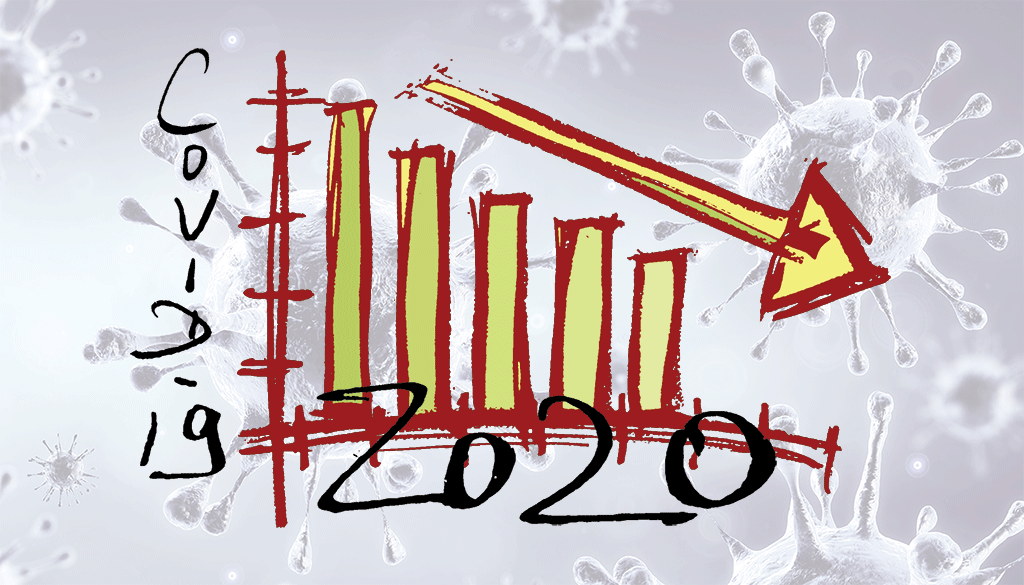
The Finance Minister Bishnu Poudel has presented the budget of the government for the fiscal year 2016/17. In a country where inflation hovers at around 10 percent per annum, it is but natural that every year‘s budget breaks the record of the previous year‘s budget in terms of both government outlays as well as revenue. This year‘s total outlay of Rs. 1.0489 trillion is 28% more than outlay made in last year‘s budget speech and almost 50% more than the revised estimate of the expenditure of the current year. As the revised estimate is made towards the end of the fiscal year, it is natural that this figure will be nearer to reality.
The budget speech in this country is a topic of great interest to the media, businesses, professionals, and of course politicians. One can understand the interest of government employees as they are looking for pay and perk rise every time the Finance Minister presents the budget and also that of businesses who survive on selling goods and services to the government. The politicians are interested in the budget as they would like the funding to go to their constituencies and their pet projects. One can also understand the interest of policy analysts and economists as they need to be seen doing something otherwise their standing in society and among peers will tumble down.
The huge interest from others like businessmen not selling goods and services to the government as well as from the media is perhaps derived from the past when the Finance Minister used to tweak tax rates and duties which in turn would decide the make or break of firms, companies and entire business houses. With general decline in the rates of taxes and duties and the need of economies to adhere to international agreements and commitments, the scope for tweaking with rates has drastically gone down. But there is always a scope for raising tax here… giving a break there. The Finance Minister has left most of the rates unchanged. This action does help induce predictability of government policies which is considered good for doing business and he deserves credit for it.
 Dr Hemant Dabadi is a Senior Fellow at Samriddhi, The Prosperity Foundation, is a well-known expert writing and researching on economic aspects of federalism in Nepal.
Dr Hemant Dabadi is a Senior Fellow at Samriddhi, The Prosperity Foundation, is a well-known expert writing and researching on economic aspects of federalism in Nepal.
Of course he has made certain changes like raising the slab of non taxable income from 300k to 400k for families or raising the duty on alcohol and cigarettes. These measures were expected as the value of the Nepali rupee has depreciated considerably since the time that the current slab was fixed and cigarettes and alcohol are products of choice for increased tax rates all over the world. In Nepal too! There has not been a single budget speech (not taking into account the budget statements when full budget could not be presented to the Parliament and budget was brought as ‘vote-on account‘) where the rates in these commodities have remained untouched. The budget will lead to rise in tax rates on mobiles and televisions where as tax on electric vehicles, health equipment, agricultural implements have come down. One item of interest for everybody should be the Rs 5 additional tax on each litre of petrol and diesel. The Finance Minister claims that this tax increase will have no adverse impact on consumers as it will be levied at the custom point itself. Even the most ordinary lay person knows that businesses pass on all sorts of costs to the consumers ultimately, otherwise they will not be in business. The national oil monopoly owned by the government has been making huge profits as it has not reduced the price even when import prices have gone down. In normal economies, when the price goes down either it is passed on to consumers or captured by the government by raising taxes as it has happened in our neighbouring country during the last two years. In our case the government owned monopoly has been making monopoly profit without passing it on to the consumers or the exchequer. The monopoly may absorb the increased tax for a limited time, but ultimately it will have to be passed on to consumers. As oil prices are firming up in the international market, the price rise in petrol and diesel in Nepal will come sooner than later. If the Finance Minister meant to say that he has devised a mechanism of raising tax without affecting consumers, he would have proved all that we have learnt and believed in economics and business principles and theories wrong, and would certainly deserve a Nobel prize in economics outright. The Finance Minister has tried to give something to all segments of society. As the human society operates on the basis of greed nobody wants to part with whatever they have got. So it is difficult for anybody to come with outright condemnation, but fact of the matter is when you try to please everybody, a time will come when nobody will be pleased. By the number of highways and energy projects mentioned in the budget speech, one gets the impression that the Finance Minister is focusing on development of basic infrastructure. Looking at the budget allocated to many of these projects one gets the impression that the amount allocated is miniscule to the total estimated cost (in some cases, the detailed cost estimate is not ready yet). In a country where cost estimates go horrendously wrong and the actual expenditure on large projects go much higher than originally estimated, many economists and analysts will question the rationale and rightness of such allocation. As this author does not have anything against any one of these projects, he can only wish good luck to the Finance Minister in getting the projects implemented. Nepalis will be the most fortunate lot if the projects get implemented in time as mentioned in the budget It has been usual practice in Nepal to overestimate government revenue, grants and foreign loan in Nepal. The Finance Minister seems to have beaten the records of his predecessors in this regard. He has estimated a 22% increase in government revenue, 26% increase in internal loan, 60% increase in foreign grants and a whopping 234 % increase in foreign loan. The Finance Minister has put a growth target of 6.5% which looks very high if we compare our performance in recent years. This author thinks it may be achievable as it will be coming on a very low base (this year‘s growth rate is predicted to be less than 1%) and the weathermen are predicting that the rain god Indra will be kinder this year which will lead to resurgence in agriculture. The Finance Minister has targeted to contain the price rise at 7.5%. The 22% revenue growth can happen only if real revenue growth is over 14%. With stipulated economic growth rate, the revenue estimate looks very ambitious to say the least. Even if everything in the revenue front goes as per script of Minister Poudel, it is very unlikely that donors will be so kind to him that they will dole out money in volumes as envisaged in the budget. The option of internal borrowing is a tricky one. If the government goes on to mop up liquidity from the market, the private sector will be in loss as it will not get sufficient funds and economic growth will suffer. The other option is of course is to activate the printing press by minting more money. But this is expected to lead to inflation and further depreciation of the Nepali currency. Besides, multilateral agencies like International Monetary Fund will come in the way. The external borrowing too will lead to growth in money supply which is supposed to lead to inflation. The excessive borrowing, both internal and external, is a way of putting the burden of repayment to our children and grand children. This simply put is shifting the load to future generations. It is worth recalling here the wise words of Thomas Jefferson, one of the founding fathers of the United States and the principal author of the American Declaration of Independence. He had written "the principle of spending money to be paid by posterity, under the name of funding, is but swindling futurity on a large scaleâ€. Apart from giving where the money is going to be spent and from where it will be derived, the budget contains a lot of policy initiatives that he intends to take in the years to come. The initiatives include getting very many new laws passed and promulgated, easing of procedures, completing a host of projects and helping the private sector realise its potential. Will he deliver on that? If the past is any indicator of the future, these declaration are just sugar coating added to the budget. When we look at the commitments made in the budget and achievements made after the fiscal year, we always observe a substantial gap in what had been said and what was done. There are no mention of what was declared in previous budget speeches and why they could not be achieved. In this country we seem to take commitments very lightly. So there is no point in appreciating or criticising a person on the basis of what he has stated in the budget in terms of policy initiatives. After all, the taste of the pudding is in eating. One thing that emerges clearly out of this budget speech is the increase in the role of the state in not only regulating the economy, but even in managing it. One large project which was expected to be taken by the private sector has firmly been transferred to the public sector. There is no mention of allowing the private sector in petroleum business. The Minister outlines socialism as his goal. So expecting a pro market, pro competition budget from a person who is committed to the ideology of communism would be expecting too much.If the Finance Minister has devised a mechanism of raising tax without affecting consumers, he would have proved all that we have learnt and believed in economics and business principles and theories wrong, and would certainly deserve a Nobel prize in economics outright
 Dr Hemant Dabadi is a Senior Fellow at Samriddhi, The Prosperity Foundation, is a well-known expert writing and researching on economic aspects of federalism in Nepal.
Dr Hemant Dabadi is a Senior Fellow at Samriddhi, The Prosperity Foundation, is a well-known expert writing and researching on economic aspects of federalism in Nepal.
Published Date: June 14, 2016, 12:00 am
Post Comment
E-Magazine
RELATED 360 Scrutiny




